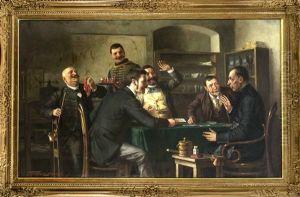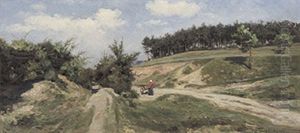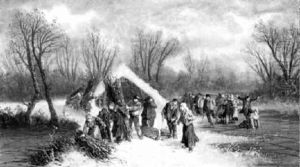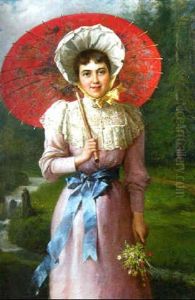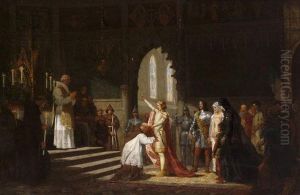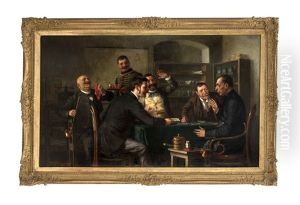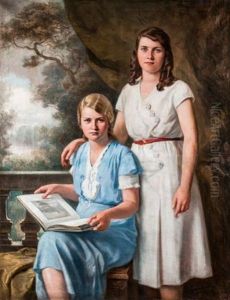Gyula Tury Paintings
Gyula Tury was a prominent Hungarian sculptor whose work played a significant role in the artistic landscape of Hungary during the 20th century. Born in 1932, Tury's early life was set against the backdrop of significant historical upheavals, which influenced the thematic and material choices in his art. He pursued his artistic education at the Hungarian University of Fine Arts, where he honed his skills and developed a distinctive style that would define his career. Over the years, Tury became known for his masterful handling of traditional materials like bronze and wood, as well as his innovative use of modern materials.
Tury's career was marked by a deep exploration of human and abstract forms, often reflecting on themes of freedom, struggle, and the human condition. His sculptures, characterized by their powerful expressiveness and technical precision, earned him a reputable place among Hungarian artists. He participated in numerous exhibitions both in Hungary and internationally, contributing significantly to the representation of Hungarian art on the world stage.
Beyond his artistic contributions, Gyula Tury was also involved in education, imparting his knowledge and passion for sculpture to future generations through teaching positions at various art institutions. His dedication to art was not only limited to his personal creations but also extended to his efforts in nurturing the talents of younger artists.
Gyula Tury's works can be found in public spaces, galleries, and collections across Hungary and beyond, serving as lasting testaments to his artistic vision and skill. His death in 2015 marked the end of a prolific career, but his legacy continues to inspire and influence contemporary Hungarian art. Tury's life and work remain a significant part of the cultural heritage of Hungary, reflecting the complexities and beauty of the human spirit through the medium of sculpture.
